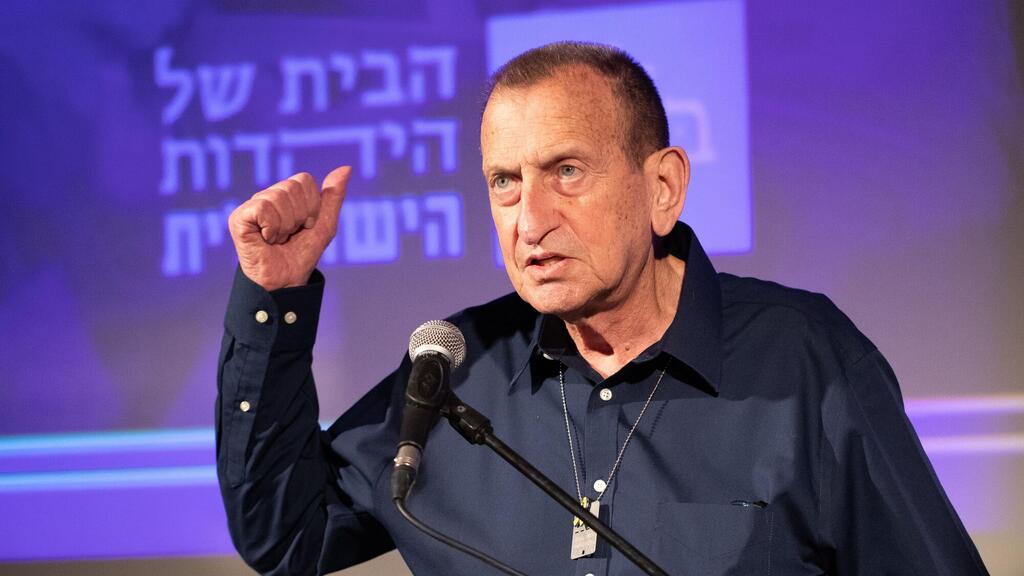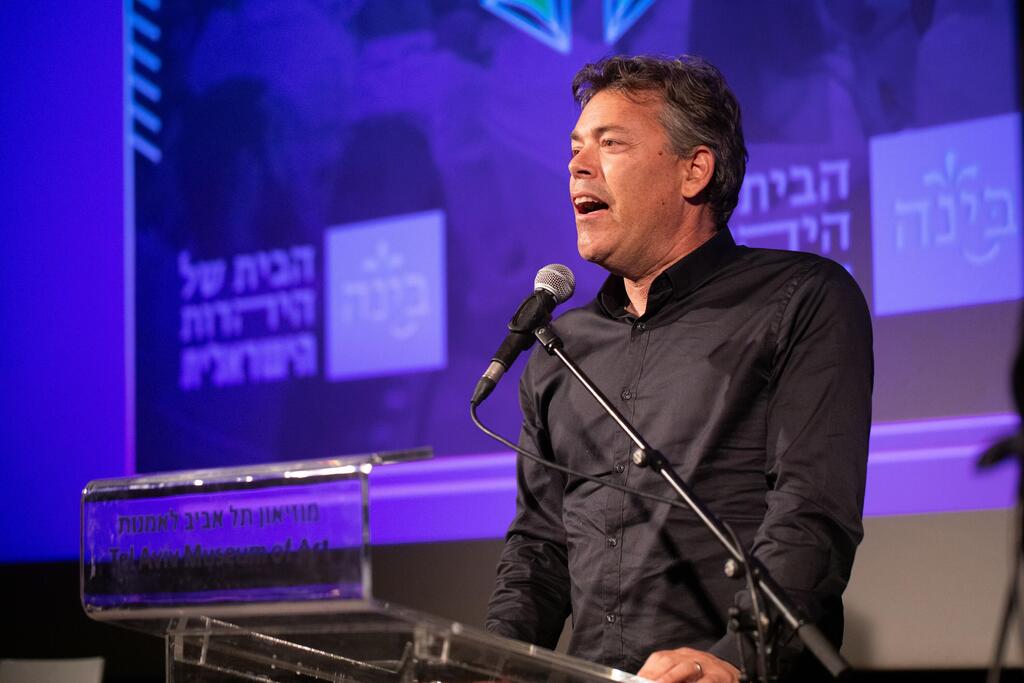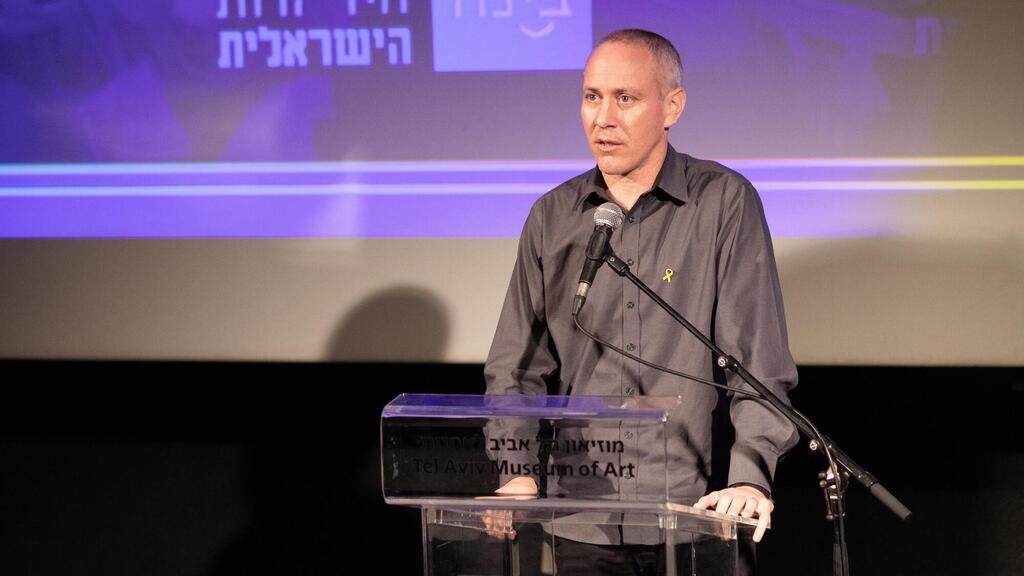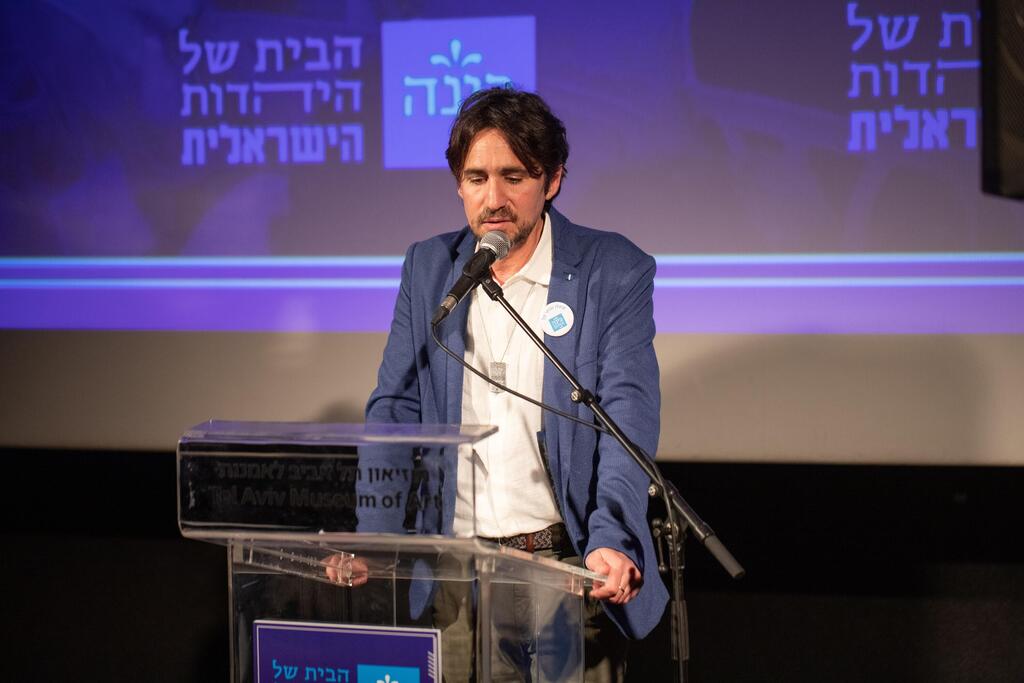“Dizengoff called Tel Aviv ‘The most important Jewish experiment in all the years of exile – the experiment of Jewish self-management.’ Dizengoff envisaged culture would be transmitted from Tel Aviv and that the city would serve as a cultural center not just for the Land of Israel, but throughout the Diaspora.”
These words were spoken by Tel Aviv-Jaffa Mayor Ron Huldai at a special event last Thursday addressing the role of Israeli Judaism in these complex times at the Tel Aviv Museum. Further participants included Kibbutz Movement Secretary General Lior Simcha, Minister Hili Tropper, Aliza Bloch, Achim Laneshek co-founder Eyal Nave, BINA Mechina participants and further alumni and guests. BINA Mechina (pre-army program) participants and young people in national service held a further event earlier in Hostages Square.
Secular Attitudes to Religion Following October 7
“From the outset, Tel Aviv has been a city of Torah - in the broader sense of the word. A city of creativity and not necessarily keeping mitzvot.” Huldai added that Tel Aviv “abandoned Hallacha as Hallacha was not in keeping with modern life and created new Jewish patterns more in keeping with life in the State of Israel.” He further said he feels a moral responsibility to continue with the idea behind BINA.
“Herzl talked about the State of the Jews, not about a halachic state. I believe Israeli society needs to wake up and realize that after this, it has to do exactly what BINA is doing and work with Jewish values enabling living as a democracy.”
“Here we are, after that horrific Shabbat, facing the great challenge of the journey to renewal,” said Kibbutz Movement Secretary General Lior Simcha. “The kibbutz movement talks about the values and ideology that are our beacon. All this has become clearer since October 7. All the things we said about settling the land, borders, farming, culture, social solidarity. After the war, our previous values - that had somewhat confused us - are now re-enhanced. We feel more whole, standing proudly and declaring we’ll fight for these values. The time has come for the kibbutz movement to take a greater role in Tel Aviv. We’re at a small moment of hope and togetherness, but we need far-reaching ideals, especially after the pogrom and the massacre.”
“These days are filled with sadness covering the whole country and everyone encounters it,” said Minister Hili Tropper. “There’s no Israeli for whom sadness is not present in their home. But BINA is also stubbornly holding on to hope. Holding onto hope alongside the ever-present sadness is a challenging task. I think that up until October 7, anyone splitting and dividing would thrive. Since October 7, there’s been a reverse trend of people talking in the language of connection, unity and cooperation thriving. And not just in politics, but in general. There were clashes on Yom Kippur, especially in Tel Aviv.”
Tropper continued to explain that since October 7, Israeli society has been enveloped by people talking about complexity, insisting on building connections, adhering to Judaism, while also holding liberal values. “In different times, they said we couldn’t connect – or that it was either Judaism or democracy, conservativism or liberalism. The desire to adhere to something complex, that was repressed until a few months ago, suddenly holds a very important place. Just think how many stereotypes disintegrated on entering the battlefield. After the terrible price everyone paid, we’re suddenly seeing different sides to the religious community that had become homogenous. Kibbutzniks, women on the battlefield, and a variety of ideas people believed – and it’s possible. Our task is to ensure these stereotypes don’t resurface. I’m not afraid of disagreements. Judaism is the potion for disagreements. But when disagreements turn to hate, the poison permeates.”
Outgoing Beit Shemesh Mayor Aliza Bloch employed the story of the Book of Ester as a lesson for Israeli society today. “You can choose to get into hate, anger and victimhood - or hope, work and take action,” she said. “The most important message of the Book of Ester is each of us needing to ask ourselves what we’d do at such a moment. I’m here, in this situation. What am I doing to improve it?”
BINA’s path over the years has been a golden mean of sorts – a place where Jewish tradition meets liberal values. For BINA CEO Nir Braudo, these aren’t two extremes, but rather an opportunity to bind together elements that have no hierarchy and, to an extent, no separate existence. “This concept takes responsibility and ownership over Judaism as a culture and as an asset,“ says Braudo. “It encourages scholarship of Jewish sources, close familiarity with the texts and culture, and full development of Jewish identity - an Israeli identity not controlled by a halachic monopoly, Judaism applicable to time and place. Israeli Judaism. It appreciates that democracy and Judaism draw from one another. They complete each other through multiple sources and values that make up a full Israeli identity building a common Israeli future.”
“We want to be the country’s interior designers”
Businessman Terry Newman, who serves as Chairman of BINA’s public council, explains why now is the time to continue spreading deep Jewish roots. “There’s the horrific conversation in which the October 7 terrorist says ‘Dad, I killed Jews’. For Israelis, it clicked that we’re Jews and if we’re Israeli Jews, we need to know what we mean by that. In moments of crisis, you search for roots. You look to find what connects you to this place. The State of Israel has been busy building a home for the past 75 years. As we were busy building the army, the economy, industry and hi-tech, we let others furnish the house. We’re back now and if we want to continue the roots, we’re saying we want to be the interior designers of the country we built. “
Newman says that BINA’s vision is that wherever there’s a Habad (Lubavitcher) House, there should also be a BINA House. “It can’t be that when an Israeli is overseas, or when he’s in Israel, and wants to connect with his Judaism, he needs to do it through a Hassidic American organization.”
Reappropriating Judaism
“I feel that the first time I positively encountered Judaism was in my time at the academy,” says academy graduate and counselor, Eitan Hess. “I come from a secular home and I only have Haredi relatives and whenever we’d meet up, it would be quite charged. I didn’t feel connected. I came to BINA because I was excited by the idea of talking about Judaism from a secular perspective in a way that’s accessible to everyone. This was my goal when looking for a Mechina (pre-army program) - finding a place where I could learn about Judaism. It was love at first sight. Reappropriating Judaism.”
Hess says that the war enhanced quite how much we’re all carrying the “Jewish Bag” together, and that we’re all obliged to get to know it in depth. “As a secular Jew, I need to understand why I continue practicing the tradition and why I’m part of Israel. I need to know what my role is in the Israeli community and how Judaism supports my secular liberal values.”
In collaboration with BINA






